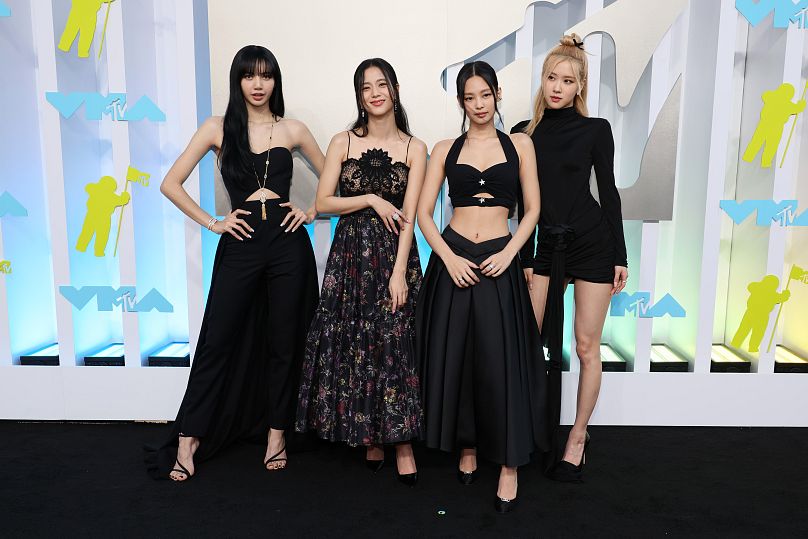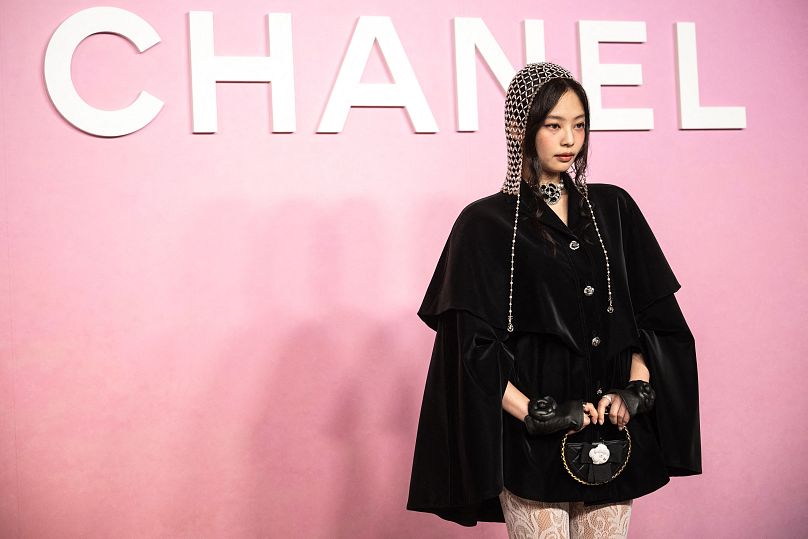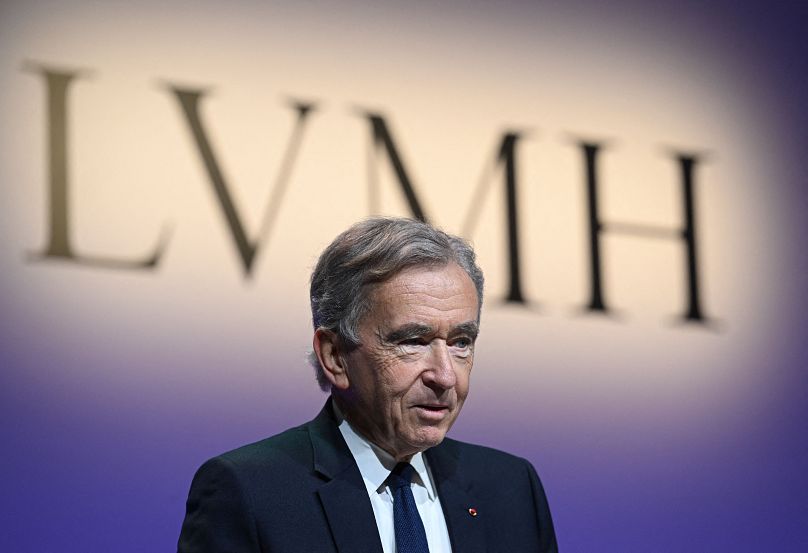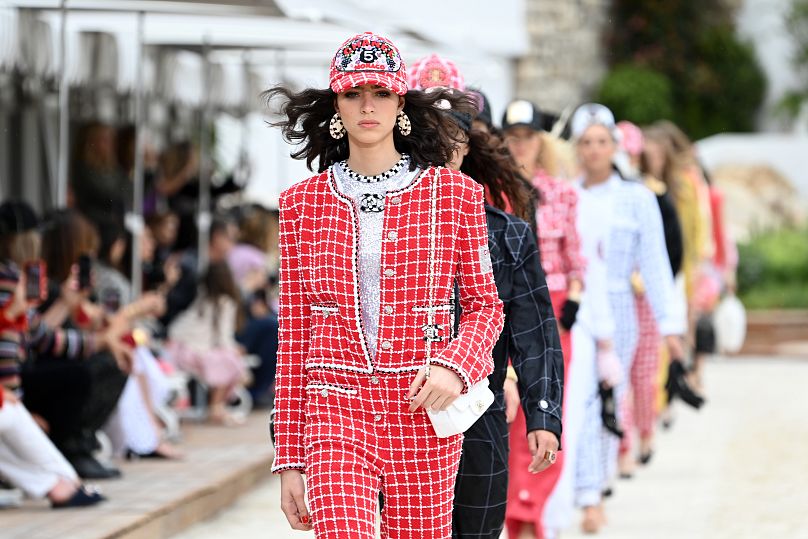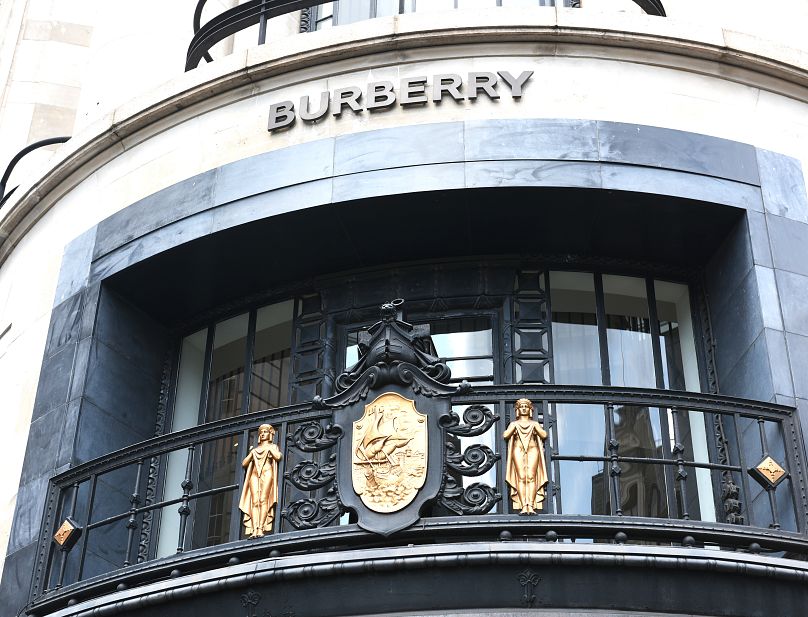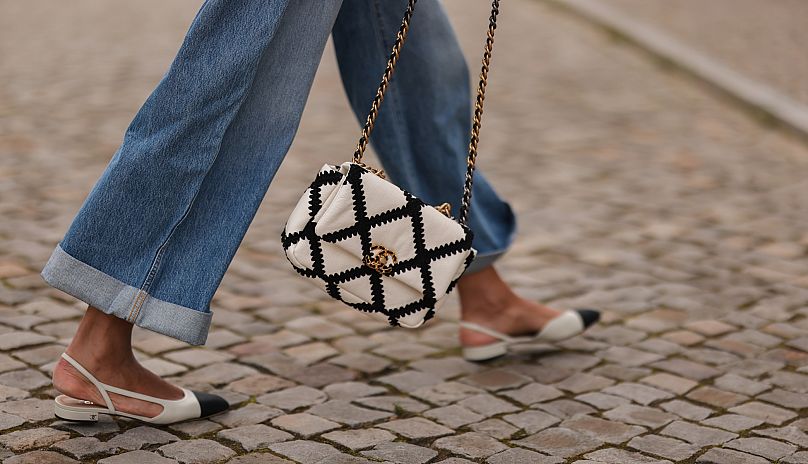Aficionados of the hugely popular South Korean musical genre are asking luxury fashion brands to commit to bigger and better climate action - but will their calls fall on deaf ears?
Stars of the K-pop world and luxury fashion have long gone hand in hand, with countless high end labels signing up a variety of South Korean musical megastars as ambassadors.
Hugely popular artists from the likes of BTS and BLɅϽKPIИK are seen to attract K-pop-mad fans, getting them excited about luxury brands.
Tapping into the highly lucrative up-and-coming Gen-Z markets, Chanel, Celine, Saint Laurent and Dior have given the prestigious role of brand ambassador to BLɅϽKPIИK members Jennie, Lisa, Rose and Jisoo respectively.
The girl band, formed in 2016, are also influential climate advocates, as well as fashion plates.
Celebrating their seventh anniversary this month, BLɅϽKPIИK have found themselves the target of leading K-pop activist group Kpop4Planet.
The organisation, along with K-pop fan groups, have unveiled a global campaign called Unboxed: High Fashion, High Carbon.
It’s calling on French labels Chanel, Celine, Saint Laurent and Dior to live up to their sustainability promises in an industry which is one of the earth’s most pollutive.
“BLɅϽKPIИK is an A+ but luxury fashion is a total fail on climate,” says Kpop4Planet campaigner Dayeon Lee, adding “These brands are K-washing fans into buying products which are threatening our future. We’re calling on them to clean up their act”.
The campaign claims that all four of the high-end labels have failed on their climate commitments and are simply ‘green-washing’ fans via the medium of K-pop stars.
Ruth MacGilp, speaking on behalf of environmental NGO Action Speaks Louder, says that “luxury brands claim that they are kinder to the planet than fast fashion due to the price and quality of their products, but the ever-increasing emissions produced by their fossil fuel powered supply chains beg to differ”.
K-pop fans are known for their activism, but this is the most significant protest they’ve made with regards to the fashion industry.
They’re accusing leading brands of dressing up their lack of sustainability by partnering with K-pop’s climate-friendly icons, including BLɅϽKPIИK, who have previously acted as ambassadors for the global climate conference COP26.
“If luxury fashion plans to keep using K-pop stars to sell us as future customers, then they need to be responsible and commit to real, intensive climate action” Dayeon Lee explains, adding, “That means the brands have to increase their transparency in their supply chains about what energy is being used and commit to RE100 across all of their operations by 2030”.
As part of the Unboxed campaign, the environmental NGO Action Speaks Louder has ranked the four brands’ publicly available information on their climate targets and current emissions in a quasi-report card.
Kering-owned Saint Laurent scored the highest with a ‘D’, while both Celine and Dior, owned by multi-billion conglomerate LVMH, scored ‘E’s.
Privately-owned Chanel came in last with an ‘F’.
While all of the brands targeted in the K-pop campaign have committed to lowering their emissions, they’re accused of doing exactly the opposite, all while shirking their promises to be more planet- friendly.
The climate crusaders are calling on the labels to commit to 100% renewable energy in their supply chain by 2030, as well as promising to reduce emissions and provide full transparency in their supply chains.
An industry-wide problem?
It’s not just the four French houses which have come under fire for their climate policies. As well as much-maligned fast fashion companies like Shein and Boohoo, high-end brands appear to be lacking in their global warming commitments.
The fashion industry is thought to be responsible for a huge 2 - 8% of global emissions while facing growing condemnation that they aren’t doing enough to take carbon out of the catwalk.
Much of this seems to be down to overproduction, with analysis by McKinsey suggesting that by reducing the volume of stock which gets sold at a discount by just 15% would see emissions fall by 10% - without impacting on value.
160 brands, including Chanel, have signed up to environmental initiative The Fashion Pact, pledging to have 50% renewable materials in their own operations by 2025 and 100% by 2030.
How solid this promise actually is remains to be seen, with some labels still accused of disregarding the crisis.
In 2018, British house Burberry burned €31 million of unsold stock, apparently in an attempt to combat counterfeiting. It’s long been a common practice throughout all corners of the industry, with high street shops like H&M doing the same.
Both the Swedish fast fashion brand and Burberry are now part of The Fashion Pledge’s list of labels.
Stylist and fashion expert Bella Hignett tells Euronews Culture that the industry has a long way to go.
“85% of textiles made end up in landfill. This has to change!”, she says, adding, “luxury brands continue to produce far too many collections each year, sending models and journalists flying across the world to shows and fittings, all adding to the huge carbon footprint issue. It’s all going in the right direction but it’s not happening quick enough”.
Various high-end labels have created Head of Sustainability roles in an attempt to be more climate-friendly and push for better business practices.
Many pieces from luxury brands do well on the resale market and some fashion houses have increasingly begun to encourage recycling, upcycling and reselling as opposed to throwing garments away.
Hignett praises this approach despite its slow progress but, no doubt like many of us, asks: “Is it too little, too late to make significant progress?”












